4 Essential Oils to Keep in Your Medicine Cabinet





 Email to a friend
Permalink
Email to a friend
Permalink
Thursday, May 14, 2015
Erin Brockmeyer, GoLocalPDX Natural Health Expert
Essential oils used to be relegated to the realm of hippies and new age bookstores. Now they are everywhere, and oddly enough it is because they are everywhere that they are starting to get a bad rap. Before, your essential oil exposure came from your free-thinking aunt who wore caftans and turquoise rings and carried essential oils with her, but now they pop up on websites, your Facebook feed, and they are being touted as cure-alls. Classes are being offered for using essential oils during pregnancy, to heal your thyroid, to fight the plague, and often the people teaching the classes have very little training in these potent and sometimes volatile oils. It’s no wonder that most of you are skeptical.
There is science behind essential oils. The first person to teach me about the medical uses of essential oils, Amanda Lattin of Terracina Aromatics & Herbals in Portland, has a degree in chemistry and uses that background to cultivate a deep understanding of the basic elemental benefits of essential oils. Still skeptical? The medical research surrounding essential oils is in its infancy, but some promising studies have been done. I don’t think essential oils are cure-alls, and I mostly use them in my practice for their relaxation properties, but there are a few essential oils that I always have stocked in my medicine cabinet, and you should, too.
Tea Tree
From the land of Australia, tea tree oil is kind of as close to a cure-all as you can get. Most of you have had a friend or colleague suggest tea tree oil as a way to deal with a problem you complained about, and if you tried it it likely worked. Tea tree oil is even lauded by survivalists as a must-have in case first aid medicines are no longer available. At the very least, this oil has anti-bacterial and anti-fungal properties which are the root of many of its benefits. Some of the best researched uses are for the treatment of athlete’s foot or nail fungus, acne, to relieve the itchiness of bites and rashes, and as an antiseptic on cuts. Truly this oil is helpful for so many reasons that many people pack it in first aid kits for backpacking trips. It is also one of the only oils that is recommended as being safe to use directly on the skin.
Peppermint
First of all, it smells great. Beyond that, there is a host reasons to keep peppermint oil close at hand. It can be almost a miracle cure for people who suffer from headaches and can even relieve migraines. If you suffer from headaches, you can try rubbing peppermint oil on your temples or the base of your neck at the onset of a headache for relief. For some women just smelling it can help relieve nausea during pregnancy. Research has shown some promise for the use of peppermint oil in cases of IBS, as one of the components helps to relax muscle spasms in the colon. It is also a great oil to smell or use in a steam inhalation if you have plugged sinuses from a cold or sinus infection. You can also add the oil to baked goods for a great kick of peppermint flavor.
Eucalyptus
This essential oil is a powerhouse when it comes to colds and sinus congestion, and again comes to you by way of the Aussies. It is a natural at unblocking clogged sinuses, and can be used for steam inhalation, in a humidifier in your child’s bedroom at night, or you can add a drop or two to your neti pot to help treat a sinus infection. There is some preliminary evidence that it may be an effective analgesic for arthritic pain and muscle pain associated with overuse. One of the best folk uses of eucalyptus oil is as a treatment for mental fatigue -- simply smell the oil, and feel more alert.
Lavender
Best known for its calming and sleep-inducing aroma, lavender oil’s benefits reach far beyond the realm of relaxation. One of the best first aid uses of lavender oil is for burns. A mild burn can benefit from a few drops of lavender essential oil to reduce pain and swelling. Because of its antiseptic and anti-fungal properties, lavender can be a great way to treat minor cuts and scrapes, acne, and some people even swear by it for treating their eczema. It tends to be fairly gentle, too, whereas some essential oils are more reactive, so it is another favorite for application to the skin. Rub some on your temples or smell to help mellow acute anxiety. You can also add lavender oil to a bath to help quiet a busy mind in preparation for sleep.
Erin Brockmeyer, LAc, is owner and acupuncturist at Solstice Natural Health in downtown Portland. She creates custom health plans for patients to help them tackle their most complicated health concerns, including infertility, prenatal care, fibromyalgia, thyroid conditions and chronic and acute pain conditions. Visit her website for more information and to download her free e-book 5 Simple Ways to Improve Your Health Today.
Related Slideshow: 7 Natural Options for Getting Gorgeous Skin
Fresh-faced, baby soft, glowing. These are all the words you want someone to think or say when they see your gorgeous face, right? They are the goal, the pie-in-the-sky dream adjectives that you think only belong to people whose faces are airbrushed into perfection on magazine covers.
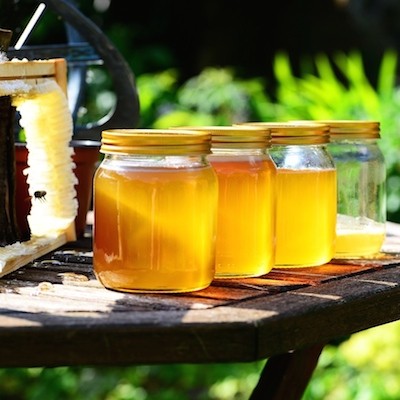
Prev
Next
1. Raw Honey
Raw honey (it must be raw to get these benefits) is amazing for your insides and your outsides. It has enzymes which gently exfoliate, antibacterial and anti-inflammatory properties which can help with acne (treatment and prevention). It is exceptionally gentle, so can be used on sensitive and rosacea-prone skin. It also helps to draw moisture into the skin and when used as a face wash, it will help prevent moisture loss. It can really be used on almost any skin type, but is especially good for aging and slightly dry skin. To use as a face wash, use it in the morning (it will not remove makeup). Take about 1 tsp of raw honey and warm it between your fingertips. Add a few drops of water if needed for a more spreadable consistency, massage onto your face, then rinse off. Follow with your favorite moisturizer or serum.
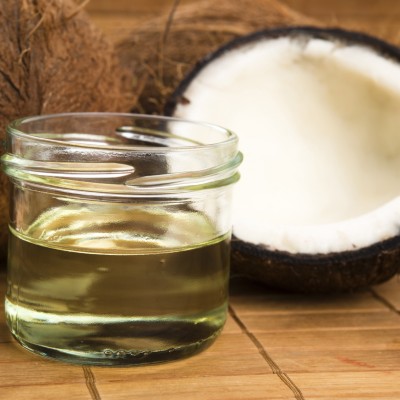
Prev
Next
2. Coconut Oil
While coconut oil is not the skincare cure-all it was thought to be a year or so ago, for many people it can be a lovely part of their beauty regimen. It is best for skin that is moderate — not too dry, not too oily. For a lot of people, because of the antibacterial properties it possesses, it can be great even on acne-prone skin, but for some, its comedogenic (pore clogging) nature is too much. With very dry skin, coconut oil can sometimes cause increased dryness, but for many it works well. One of the best options for incorporating coconut oil into your beauty routine is as a gentle makeup remover. Simply grab a bit of organic unrefined coconut oil, massage it between your hands until it is a liquid consistency, and massage on your face. After massaging for about 30 seconds, you can either rinse it off with a warm washcloth, or simply rub it off with a soft dry cloth (this leaves a bit more moisture on your skin). Voila! Even your eye makeup will be removed.
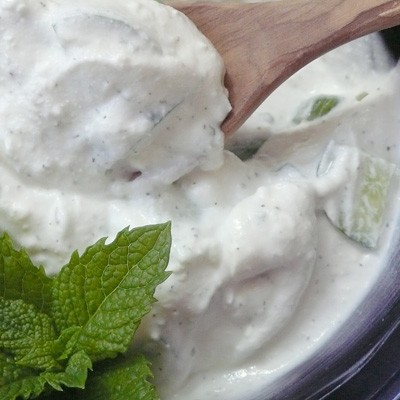
Prev
Next
3. Yogurt
This staple of the dairy aisle has all kinds of benefits for your skin. It is a great sunburn soother, can help moisturize, and can brighten skin by way of gentle exfoliation. Make sure to buy the organic plain yogurt, and do a test first as some people will have reactions to this skin treat. The yogurt mask is one of the best ways to incorporate this goody into your routine. For aging skin, start with 3-4 tablespoons of yogurt, and add 1 tablespoon of olive oil. Mix and leave on your face for about 20 minutes once a week. This mask is great for brightening and gently exfoliating the skin, and will leave the skin soft as a baby’s butt.
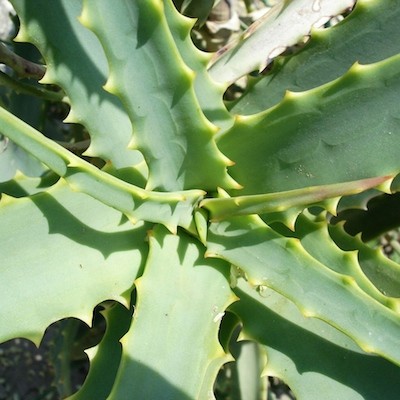
Prev
Next
4. Aloe Vera
Of course you’ve used aloe for a nasty sunburn, but did you know it could be a part of your regular beauty regimen, too? It’s a fabulous light moisturizer for those of you with oily skin (yes, you still need a moisturizer!). Because of its incredible anti-inflammatory properties, aloe is an effective acne fighter, as well. Because aloe is high in antioxidants, beta carotine, Vitamins A and C, it also works as somewhat of a firming, anti-aging megastar. There is almost nothing that this gel can’t do — and it makes a pretty plant on your windowsill.
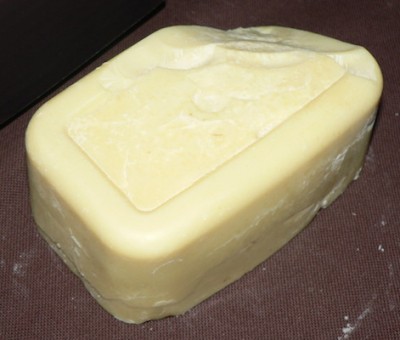
Prev
Next
5. Cocoa Butter
This is the go-to moisturizer for many women with dry skin because it is high in fatty acids. Soothing and gentle, it can be used for chapped skin, and can often even be used by people who suffer from eczema. High in antioxidants, cocoa butter will help your skin fight free radicals that cause aging. Plus, if you get the raw, unrefined food grade cocoa butter (you should) it doubles as a tasty treat!
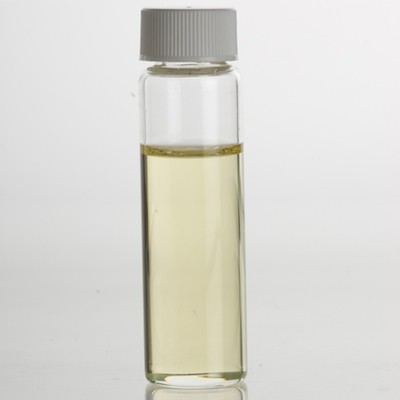
Prev
Next
6. Rose
First up is rose hip oil. This little gem is high in Vitamin C and Vitamin A (retinol) which are two ingredients often found in expensive anti-aging skincare lines because of their purported ability to reduce fine lines and wrinkles. Do be aware that both Vitamin C and Vitamin A can make your skin extra sun sensitive, so make sure you protect yourself. This oil has also been shown to help reduce sun spots, as it can reduce pigmentation.
Next there is the popular and old-fashioned rose water. This is something your grandma may have used when she was young, and it has a delicate rose scent. Because rose oil has been shown to have high levels of antibacterial properties, it has often been suggested that rose water (a much diluted rose oil) could also be slightly antibacterial and could be helpful for those with acne. Overall, rose water is touted for its ability to soothe, hydrate and balance oily skin. It is also easy to make it
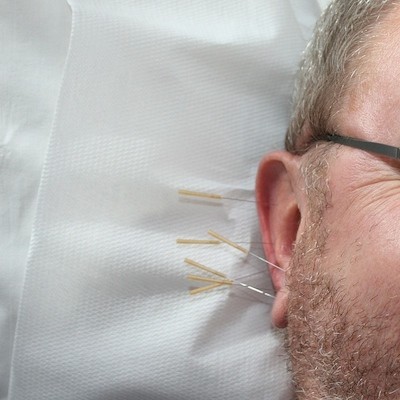
Prev
Next
7. Acupuncture Facelift
This may not be a product, but it does fall in line with the natural products in this article. Before I was even fully licensed in the state of Oregon, I took a certification class so that I could offer acupuncture facelifts for my patients . The reason was simple: it offers a non-surgical, all natural way to deal with fine lines and wrinkles, sagging skin and to get you an amazing glow. It won’t be as dramatic as a surgical facelift, but you will notice results — the most noticeable of which come after 3-4 sessions, though it may take more to achieve lasting results. The really big benefit here is that because acupuncture is holistic, after treatment you’ll likely feel benefits that extend well beyond your aging skin.
Enjoy this post? Share it with others.





 Email to a friend
Permalink
Email to a friend
Permalink
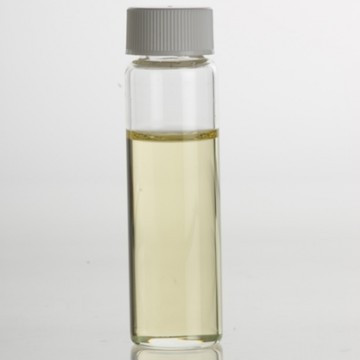
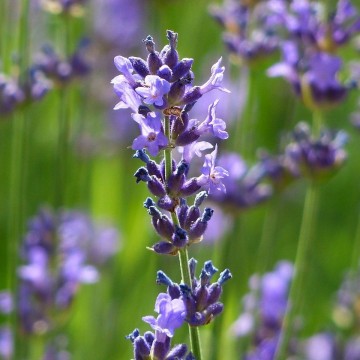



















 Delivered Free Every
Delivered Free Every
Follow us on Pinterest Google + Facebook Twitter See It Read It